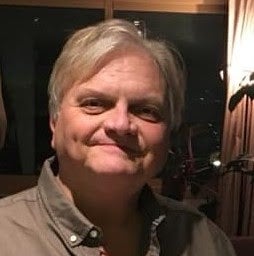“I remind them they are the experts. Their job is to help me understand what they need.”
Dr. Charles Hall has some advice for Specialists: talk less and listen more. In fact, listening to the audience before doing anything else is the cornerstone of his methodology. He has refined his approach in over 40 countries, including East Timor, Indonesia, South Sudan, Venezuela, and Yemen. He has crisscrossed the globe working on Teaching English as a Foreign Language (TEFL), English for Specific Purposes (ESP, especially tourism, law, and medicine), and training teachers and teacher trainers.

First, he has people give him the answers. “We have formal and informal focus groups and conversations,” he said. “I remind them they are the experts. Their job is to help me understand what they need.” He then involves them in designing a program to suit their needs.
“Some of our colleagues never quite understand that need to listen,” he continued. “They come in with big banners and wagons with answers. I come in with big wagons of questions and heaps of patience, empathy, and cautious humor.”
This initial inquiry is essential in any country, but in Indonesia, it was mandatory. With over 17,000 islands, Indonesia is a multicultural, multilingual, and multi-religion country. Some of the participants in the project at the national police academy in Jakarta came from that sprawling city; others came from an island that does not even have family names (even their official documents list just one name). With such a disparate audience, he did not dare design a program without surveying their needs at the outset.

His questioning revealed that the police needed to be encouraged to rethink the image they wanted to present to tourists. He discovered that, “As in many countries, police are often indistinguishable from the military,” and consequently not someone that ordinary people would instinctively approach in a crisis. “That attitude needed to change,” Hall said. “We had to help the police learn to work with victims of crime, not just perpetrators. They needed to learn how to become friendlier and approach tourists without seeming aggressive but being professional all the while. If a crime occurred, the officer should provide guidance and offer counseling, making it a less traumatic experience.” This training was a tall order, but immediately understandable to both the police and their superiors.
In two similar projects in two other countries, Hall shadowed police for a couple of days as they worked with distraught tourists who were simply lost or whose ATM cards had just been pickpocketed. In one episode, he was able to review the video and photos of the events where a police officer went up to an older American couple who were looking confused at a map and asked in a commanding voice, “What are you doing?” The look of terror on the couple’s faces in the photo surprised the trainees who had no idea how terrifying they were when they were using their ‘police voice.’ Hall had them role play different ways to approach tourists and then used that to develop materials and protocols for dealing with victims and bystanders rather than perpetrators. Sometimes, he would slide in content about human rights. “You work with humans, not criminals,” he would remind them.
“You work with humans, not criminals.”
After many projects such as the one with Indonesia’s police, Hall has determined three essential rules for anyone working overseas.
Rule 1: Listen (see above).
Rule 2: Culture shock awaits everyone. There is no way to avoid it, Hall said, “since we all bring expectations with us to other countries.” These expectations are often invisible to us just as water is indistinguishable to a fish. Although he was often brought in as the “expert,” he still didn’t know what to expect. Charles said he deals with the inevitable with his roll-with-the-punches advice. “I expect to be surprised but I never know what’s going to surprise me. Our reactions sneak up on us, and we think, ‘Wow – I didn’t see that coming!’” He also cautions travelers to be on the lookout for their own insidious ethnocentrism, those moments of thinking “That’s not the way we do it.” He tells the English Language Fellows he works with, “You’re going to be surprised, so just be surprised.” On one assignment, the project, city, and institution where he was going to spend three weeks were all changed for political reasons after he was already in the plane en route. When he arrived and was told the news, he shrugged and simply said, “Ok, let’s go!”
Rule 3: Whatever works.

After 30 years at the University of Memphis, Charles Hall is Associate Professor of English at Alfaisal University in Riyadh, Saudi Arabia. His work intertwines three areas of interest: TEFL, ESP – especially tourism, law and medicine –, and teacher training. He has taught or lectured in over 40 countries, including East Timor, South Sudan, Yemen, and Venezuela. He is the author or co-author of several texts and articles including Phonetics, Phonology & Pronunciation for the Language Classroom from Palgrave and co-author of American Legal English from the University of Michigan Press. In addition to being an English Language Specialist, he has twice been a Fulbright Scholar as well as also having been a Senior English Language Fellow.
